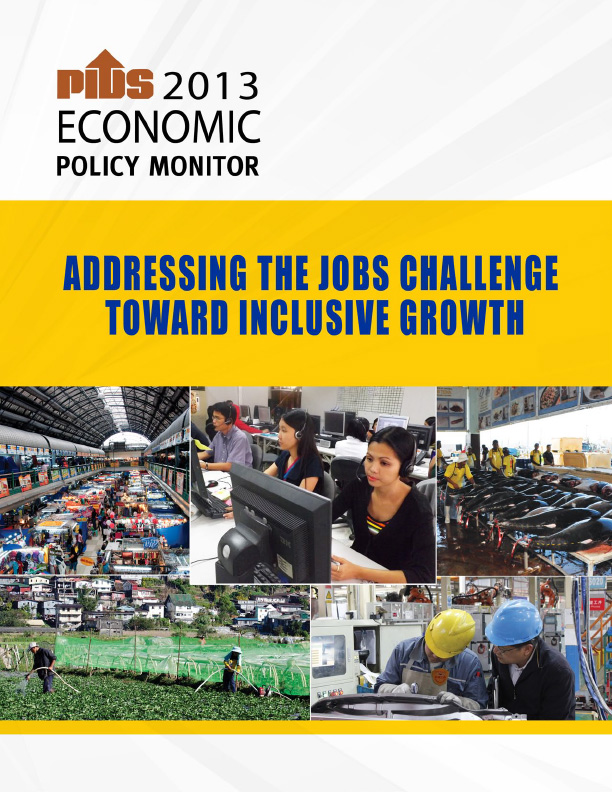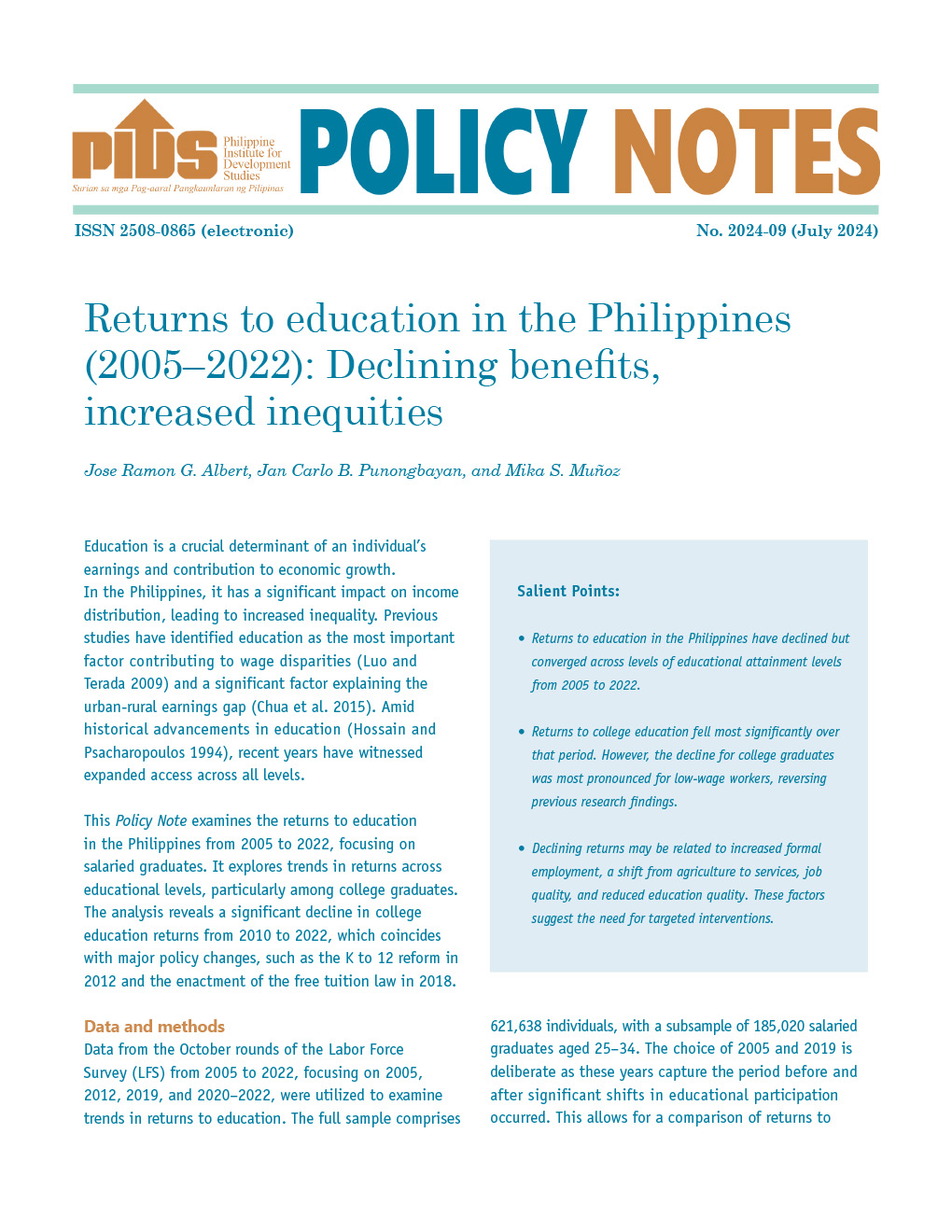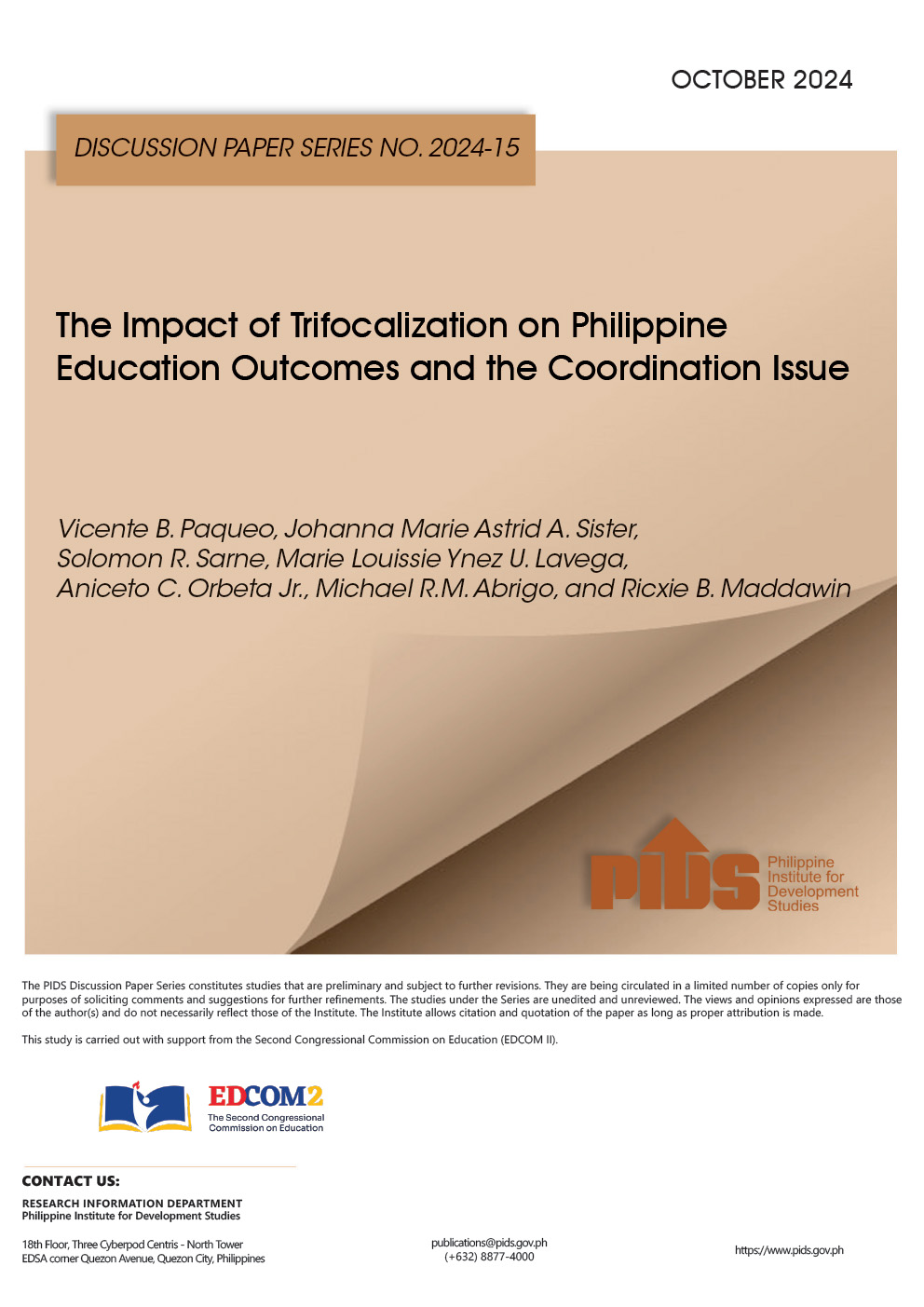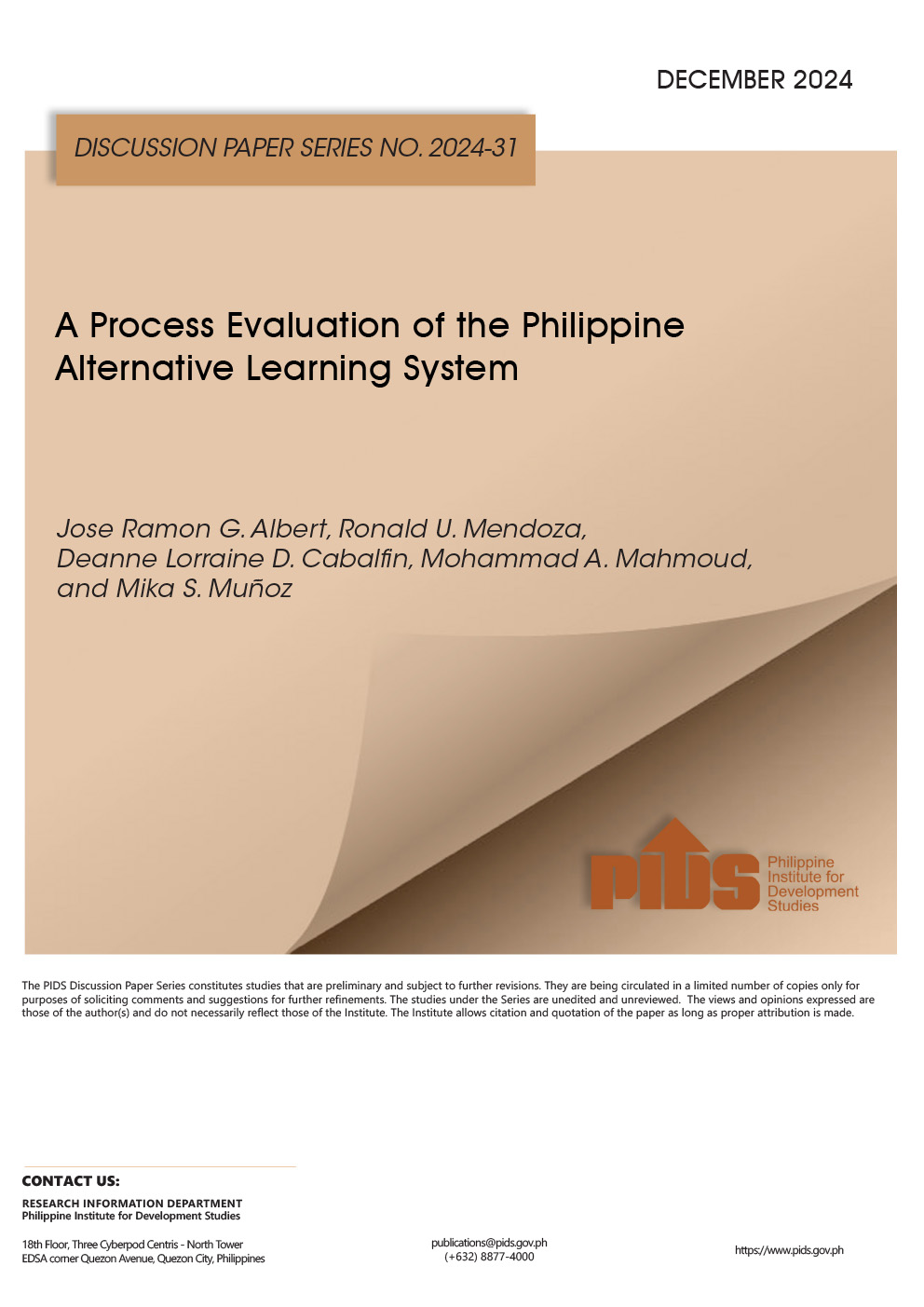This fourth issue of the PIDS Economic Policy Monitor (EPM) focuses on the need to pursue inclusive growth through the expansion of quality job opportunities. It revisits the jobs issue and provides recommendations on how to address it, taking into consideration the socioeconomic and political landscape and historical experience of the Philippines.
Consistent with past EPM issues, Chapter 1 analyzes the macroeconomic scenario of the past year and provides an outlook of the economy in the coming year. The 7.2-growth rate in 2013 is examined along with global and regional developments, the productive capacity of the economy to sustain this high-level growth, and the inclusiveness of economic growth. The Philippines is now in the cusp of major international and regional developments. The formation of an ASEAN Economic Community (AEC) in 2015 would benefit the Philippines as it drives market expansion, economic transformation and modernization, and creates more job opportunities. These, along with the country`s investment grade rating, bode well for sustaining a high-growth path. Chapter 2 reviews the laws, regulations, and policies formulated and adopted by the government in 2013 in support of the goal to sustain economic growth and achieve social equity. These policies include, among others, the updated poverty reduction program, comprehensive industry roadmap, food safety act, the ban against destructive and illegal forms of fishing, policies related to disaster risk reduction and management, revised national health insurance bill, housing policies, various infrastructure-related policy developments, and breakthroughs reached in the 9th Ministerial Meeting of the World Trade Organization held in Bali, Indonesia. Chapter 3, the theme chapter, looks into the causes of the economy`s failure to generate substantial and quality job opportunities by examining the effectiveness of minimum wage and other labor regulations to determine if they are growth and welfare enhancing. The study finds that raising the minimum wage reduces employment in smaller firms, lowers household income, and increases the probability of falling into poverty. Along with recommendations for a minimum wage reform, expansion of gainful job opportunities from the labor-intensive manufacturing sector, and greater investments in education and other human development aspects, the study proposes a 12-point agenda called "Job Expansion and Development Initiatives" or JEDI.













